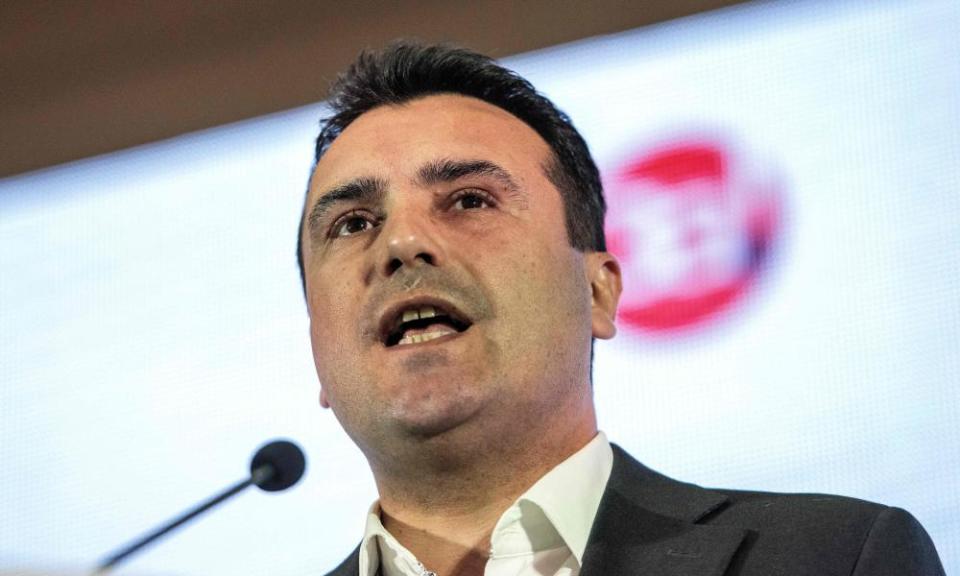Macedonia MPs to vote on name change in key moment for Balkans

In a vote with repercussions for the stability of one of Europe’s most conflict-prone regions, MPs in Macedonia are poised to decide on Monday whether to accept changing the Balkan country’s name.
The country’s prime minister, Zoran Zaev, is locked in battle to secure the requisite support, and the MPs’ ballot will be knife-edge. “It is going to be decisive for him,” said Branko Geroski, a prominent political commentator speaking from Skopje, the former Yugoslav republic’s capital. “Either he wins the two-thirds majority needed to ratify the Prespa agreement with Greece or he calls early elections.”
The stakes could not be higher. If MPs agree to the strategic state being rechristened North Macedonia, membership of Nato and EU beckon. Both are seen as vital for a country where conflict between Macedonian Slavs and a restive Albanian minority was only narrowly averted in 2001.
Zaev has staked his future on the name-change deal reached with Athens earlier this year. Since the republic proclaimed independence 27 years ago, Greece had argued that its name concealed territorial ambitions against its own adjacent province of Macedonia.

The social democrat leader faces formidable opposition from a strong nationalist front and needs 80 votes in the 120-seat parliament, but his two-party coalition only has the backing of 72 MPs.
Parliamentarians will be asked on Monday if it agrees with a proposal to rewrite the republic’s constitution to reflect its new name.
“Even if enough do that, there is no guarantee they will then vote in support of the amendments that will follow,” Geroski said. “It will be a complicated and very risky process.”
Zaev has said he will call snap elections if he fails to ratify the accord after the majority of voters boycotted a referendum on the issue two weeks ago. Although over 90% of those who cast ballots enthusiastically endorsed the agreement, the low turnout has dented Zaev’s ability to win backing for the deal.
The prospect of the tiny country being plunged into political turmoil rose as rightwing opposition politicians downplayed the likelihood of Zaev winning MPs’ backing. “There will be no two-thirds majority, do not hope for it,” the VMRO MP Trajko Veljanovski said last week.
The vote in Skopje is being watched nervously in Athens, where the Greek prime minister, Alexis Tsipras, has also faced protests over the deal, most notably from his own junior partner in office, the nationalist Anel party. Greece must also ratify the agreement if passed by its neighbour.
Ahead of the ballot, Zaev said the vote marked a historic opportunity for the former communist country to be embraced by the west. Russian meddling in the region has increased dramatically and Moscow has been accused of masterminding a well-orchestrated disinformation campaign through social media before the referendum.
“This chance will not be repeated,” Zaev said as he urged opposition MPs to vote responsibly.
Tsipras and Zaev were hailed by the EU’s foreign affairs commissioner at the weekend for the courage they had shown in ending the dispute and agreeing to the name deal. “This is a unique opportunity for reconciliation in south-east Europe … an opportunity that might not come again any time soon,” Federica Mogherini said.

 Yahoo News
Yahoo News 
